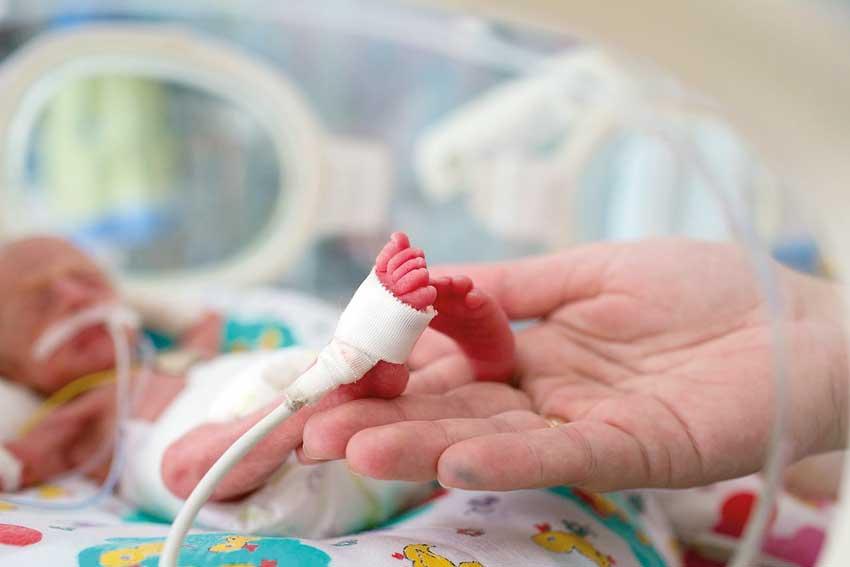17 Sep 2021 - {{hitsCtrl.values.hits}}

 Fetal alcohol syndrome (FAS) is a spectrum of disorders caused by alcohol intake during pregnancy, where the mental and physical development of a child is affected due to prenatal alcohol exposure. FAS occurs when a pregnant mother-to-be consumes alcohol, which enters her bloodstream and then reaches the bloodstream of her fetus, and her unborn baby would be exposed to high concentrations of blood alcohol levels.
Fetal alcohol syndrome (FAS) is a spectrum of disorders caused by alcohol intake during pregnancy, where the mental and physical development of a child is affected due to prenatal alcohol exposure. FAS occurs when a pregnant mother-to-be consumes alcohol, which enters her bloodstream and then reaches the bloodstream of her fetus, and her unborn baby would be exposed to high concentrations of blood alcohol levels.
In adults, the liver functions as a detoxifying organ. Potential toxins such as alcohol are eliminated by the liver within some hours of consumption. However, the tender developing liver of an unborn child would not have matured adequately to bear such a burden, and the alcohol remains in the baby’s system, unable to be eliminated.
Alcohol levels in the fetus will eventually prove detrimental to its normal development. FAS is notorious for its neurobehavioral and physical deformation of children affected by it.
The condition is mainly seen in western countries such as the USA and in countries of Europe where there is an estimated risk factor of 1% to 5% of infants being born with FAS. Although FAS is uncommon in Sri Lanka, as alcohol dependance in females in the country is low by comparison, heavily urbanised areas may still run a comparatively higher risk percentage.
Alcohol exposure may impact development of tissues and organs of a fetus which will further impair both mental and physical attributes of a baby, and may even continue towards their adulthood.
Some symptoms are:
Poor growth. Newborn babies may have low birth weights and small head circumferences. They may not grow or gain weight as well as other children.
Birth defects. FAS can cause heart, bone, and kidney problems. Vision problems and hearing loss are common.
Seizures and other neurologic problems, such as learning disabilities, and poor balance and coordination.
Delayed development. Kids may not reach milestones at the expected time.
Behavioral problems. Babies may be fussy and have trouble sleeping. Older children and teens may have a lack of coordination and poor fine-motor skills, trouble getting along with peers and relating to others, learning difficulties (especially in maths), poor memory, and problem-solving skills, hyperactivity, poor attention and concentration, and impulsiveness
In severe cases patients may show complications arising from FAS, that extend well into adulthood, including aggression, substance abuse, drug misuse, depression and uncommon sexual behaviour. Most of these complication stem from not identifying the core issue in early stages and lack of help. Especially in the Asiatic socio-cultural environments, they may not be identified as patients but unfortunately, as incorrigible students, criminals or law-breakers. Parents and teachers should be watchful of young children who exhibit such behaviours, and must seek professional help. Understanding the full responsibility to bringing a new life to the world by the parents is a crucial factor in avoiding FAS. Avoiding alcohol during the pregnancy is the only action an expecting mother can do in order to avoid the syndrome. There is no “Safe” level of alcohol intake during pregnancy, and studies have suggested that consumption of alcohol in the first three months is most harmful for the fetus. This may be a challenge, as women who are unaware of their pregnancy may consume alcohol unknowingly. Therefore, it is advisable to avoid alcohol consumption if one is planning on conceiving.
There is no particular treatment for fetal alcohol syndrome, and the damage to the child’s brain development and organs are irreversible. But an early diagnosis and can make a significant difference. A physical and a neuropsychological examination done by professionals can correctly diagnose children with FAS and direct them to treatments which could manage the symptoms and improve the quality of life.
20 Dec 2024 9 hours ago
20 Dec 2024 20 Dec 2024
20 Dec 2024 20 Dec 2024
20 Dec 2024 20 Dec 2024
20 Dec 2024 20 Dec 2024